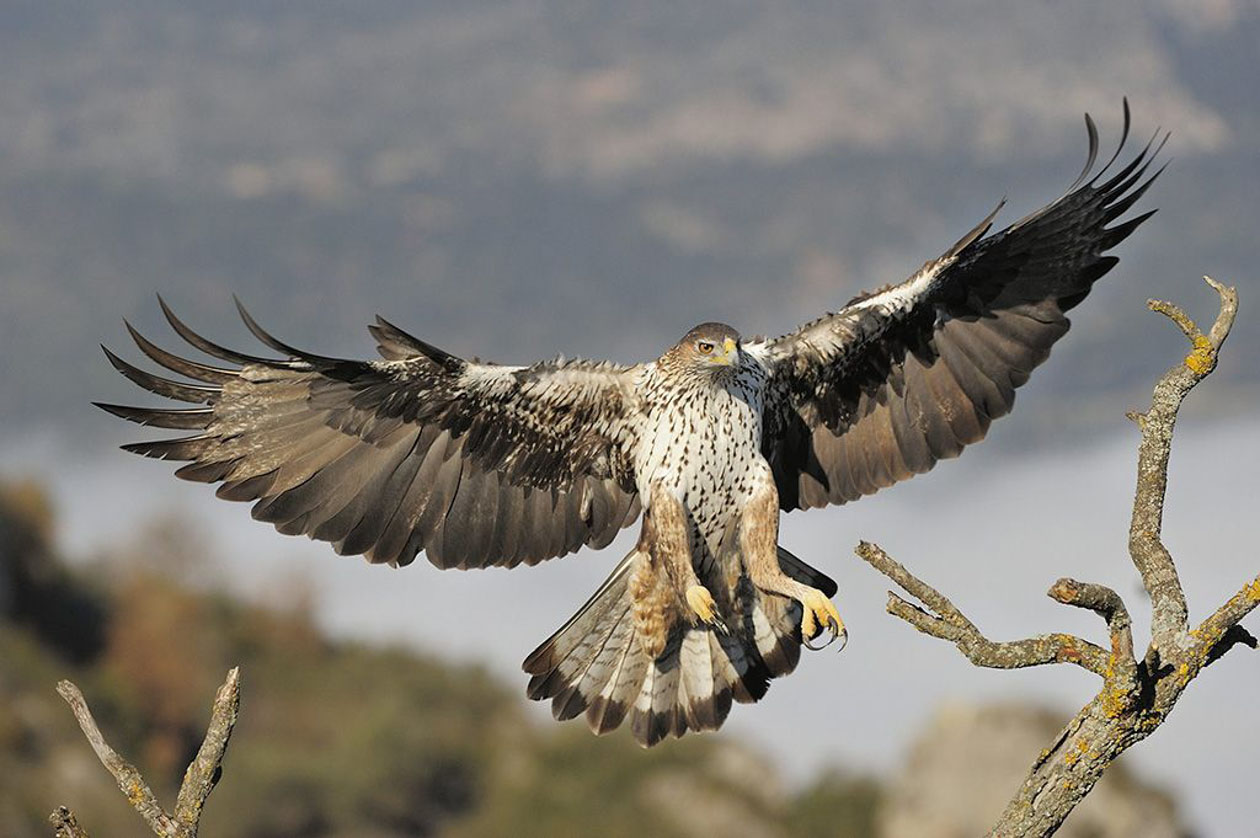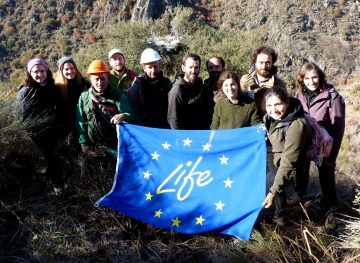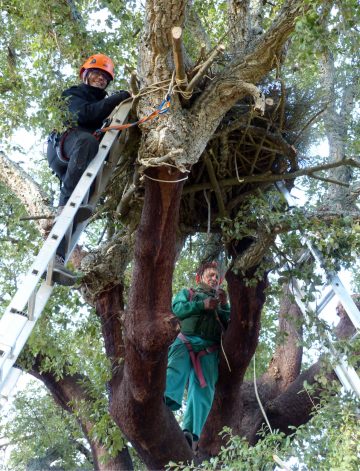Members of the LIFE project “Club de Fincas por la Conservación del Oeste Ibérico”, including many employees of Rewilding Europe partner Associação Transumância e Natureza, came together late last year in the Western Iberia rewilding area to learn how to build nesting platforms. Encouraging birds to nest in protected areas such as this will help endangered local species such as vultures, eagles and storks.

A workshop held late last year in the Western Iberia rewilding area saw members of Portuguese nonprofit organisation Associação Transumância e Natureza (ATN), a partner of Rewilding Europe, receive theoretical and practical training in how to build nesting platforms. This will benefit local species such as black stork, scavengers such as black vultures, and raptors such as Bonelli’s eagle. Members of the LIFE Rupis project, which is focused on Egyptian vulture and Bonelli’s eagle conservation in the adjacent Douro Valley, also received training.

The workshop was organised by ATN and the conservation-focused Spanish nonprofit organisation Fundación Naturaleza y Hombre (FNyH), who are both members of the LIFE project “Club de Fincas por la Conservación del Oeste Ibérico” (Association of Estates for Conservation in Western Iberia).
The aim of this project, which is open to Western Iberian property owners, is to boost conservation across the area’s 10 Natura 2000 sites, and to improve connectivity between them. Nest building will hopefully encourage more birds to nest in and around these protected areas.
The workshop was financially supported by The Sound Approach, a UK-based publishing company which aims to popularise birdsong and raise standards in the use of sounds in bird identification. The Sound Approach Bird Fund offers funding to bird conservation projects around the world that are having a real impact on the survival of endangered species.
The workshop was given by Juán Perez, a highly experienced member of FNyH. The first day of training saw participants plan the practical part of the exercise, and also discuss conservation in protected areas. The following two days – the practical part of the workshop – saw four nests built by trainees using a variety of branches and twigs, leaves and moss.
“I learned a lot from this exercise,” says ATN volunteer Cátia Ribeiro. “It was fascinating to see how these platforms were constructed. I look forward to putting my training to good use and hopefully seeing more endangered bird species nest in the Côa Valley and other nearby areas.”
“The workshop was very productive and really helped share knowledge and experience between LIFE project partners,” adds Western Iberia rewilding team leader Pedro Prata.

Rewilding Europe views nest building as an artificial measure to help very vulnerable bird species in rewilding and other areas. At the same time we are working to help such species by restoring prey populations (for the Bonelli’s eagle in Western Iberia this would include birds such as the red-legged partridge and rock dove), restoring habitat for these prey species, and ensuring sufficient protection measures are in place. These are all part of rewilding at a landscape scale and building natural populations.
Supporting the comeback of species such as vultures and eagles in and around the Western Iberia rewilding area is not only good for nature itself, but good for the area’s thriving nature-based economy. Since 2013, loans from Rewilding Europe Capital, Rewilding Europe’s pioneering enterprise facility, have so far helped a quartet of nature-based businesses become established in the Western Iberia rewilding area. Star Camp, Casa da Cisterna, Wildlife Portugal and Miles Away are all pioneering nature-based tourism models which are helping to reinforce the local rewilding agenda.
The 200-km long Côa Valley Grand Route takes tourists and nature lovers through the Western Iberia rewilding area, allowing them to enjoy its diverse wildlife and discover the beautiful countryside of Portugal.
The European Union has co-financed more than 4500 LIFE projects across Europe since 1992. Rewilding Europe is also participating in the LIFE Vultures project, which is focused on the conservation of black and griffon vultures in the Rhodope mountains of Bulgaria and Greece. Artificial nest building is also being carried out by the Rewilding Rhodopes team as part of this project.
